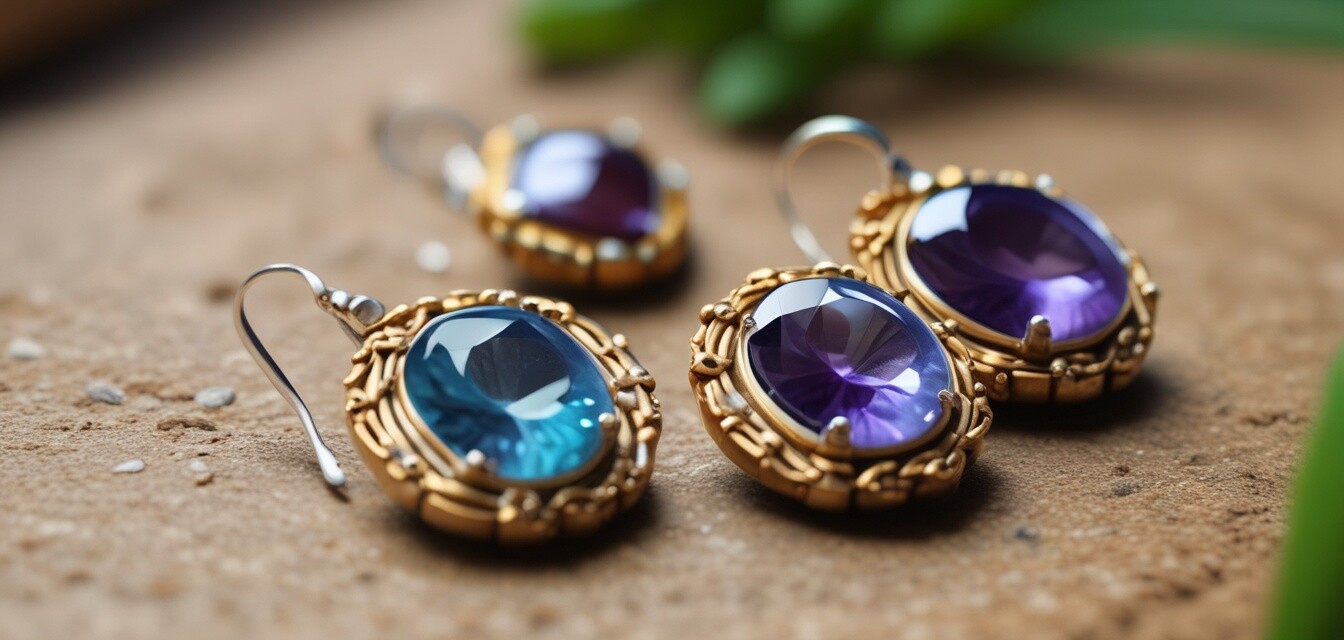
Insider Tips for Ethical Jewelry Sourcing
Key Takeaways
- Prioritize suppliers with certifications indicating sustainable and ethical practices.
- Engage directly with artisans to understand their sourcing methods and labor practices.
- Utilize eco-friendly materials and practices throughout the production process.
- Support local communities by sourcing from artisan suppliers.
- Stay informed about sustainability trends within the gemstone jewelry industry.
As the ethical jewelry movement continues to gain momentum, jewelry brands are faced with increased demand for transparency and sustainability in their sourcing practices. Understanding how to source gemstones and materials ethically is crucial for building a responsible brand that resonates with environmentally-conscious consumers. This article offers insights and tips for effectively sourcing jewelry in an ethical and sustainable manner.
Why Ethical Sourcing Matters
Ethical jewelry sourcing is crucial not only for protecting the environment but also for supporting social equity and local communities. It involves considering the entire supply chain, from the initial extraction of resources to the final customer. Ethical sourcing practices help mitigate negative impacts such as child labor, exploitation, and environmental degradation, ultimately fostering a more sustainable jewelry industry.
Understanding Certifications
When looking to source ethically, familiarize yourself with various certifications that indicate adherence to sustainable practices. Below is a table summarizing important certifications in the jewelry industry:
| Certification | Description |
|---|---|
| Fair Trade Certified | Ensures that producers receive fair wages and work in safe conditions. |
| Responsible Jewellery Council (RJC) | Promotes ethical, social, and environmental practices in the jewelry supply chain. |
| Conflict-Free Sourcing | Verifies that materials do not finance conflict or human rights abuse. |
| Global Organic Textile Standard (GOTS) | Certifies organic fibers and sustainable production for textiles. |
Building Relationships with Artisans
Building direct relationships with artisans is vital for ensuring ethical practices. Engage with small-scale producers and learn about their methods, working conditions, and the communities they support. Doing so not only strengthens your supply chain but also fosters a sense of ethical responsibility.
Communicate Your Values
Being transparent about your sourcing practices will build trust among consumers. Share stories and information about the artisans you partner with on your website and social media platforms. Highlighting their craftsmanship will connect customers to the people behind the products, encouraging conscious consumption.
Utilizing Eco-Friendly Materials
Incorporating eco-friendly materials into your designs can significantly enhance your brand’s ethos. Below are some sustainable materials to consider when designing ethical jewelry:
- Recycled metals (e.g., gold, silver)
- Lab-created gemstones
- Upcycled materials from previously used jewelry
- Natural materials such as wood and stone
Stay Updated on Sustainability Trends
The sustainability landscape is ever-evolving. Regularly engage with industry publications, attend conferences, and participate in online forums to stay informed about emerging trends and best practices in ethical sourcing. This will not only keep your brand relevant but will also indicate to your consumers that you take your commitments seriously.
Supporting Local Economies
When sourcing gemstones and materials, prioritize suppliers that positively impact their local communities. This means selecting suppliers who promote fair trade practices and invest in community development. By supporting local artisans, you contribute to an eco-conscious supply chain and help empower communities economically.
Pros
- Builds consumer trust through transparency and ethical practices.
- Supports local economies and artisans.
- Contributes to environmental sustainability.
- Allows differentiation in a crowded jewelry market.
Cons
- Potentially higher costs from sourcing materials responsibly.
- Finding reliable artisan partners may take time and effort.
- Limited availability of specific materials.
Conclusion
Ethical sourcing in the jewelry industry is critical for fostering sustainability and ensuring social responsibility. As a brand, embracing these practices not only benefits your business but also contributes to the well-being of communities and the environment. For more insights into ethical sourcing, check out our Sustainability Practices category.
Additional Resources
If you're looking for additional insights on eco-conscious products, consider exploring our pages on Artisan Rings and Eco-Friendly Bracelets. Each of these categories celebrates beautiful craftsmanship while emphasizing sustainable practices.